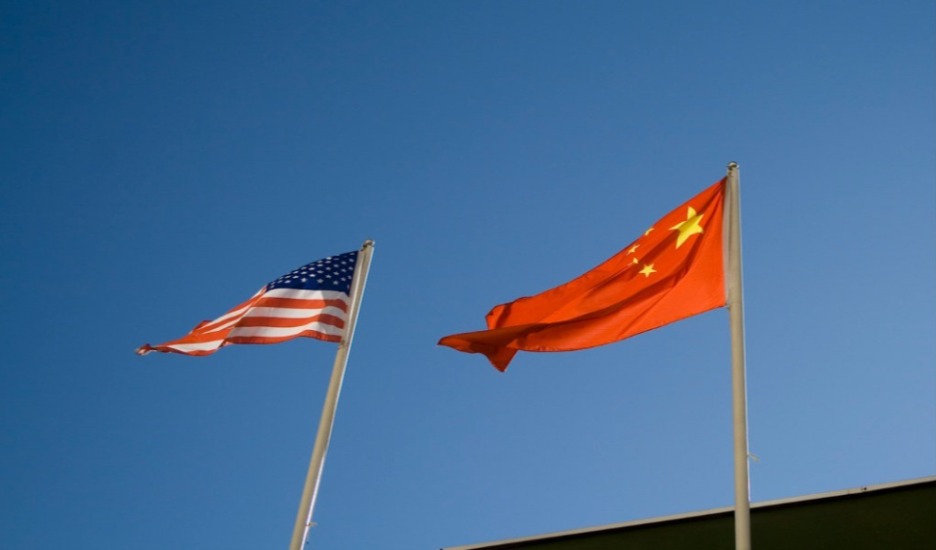Banking on Influence

Published by The Lawfare Institute
in Cooperation With

Editor’s Note: Foreign political interference is becoming a common tool of statecraft, with Russia, China, and other countries regularly trying to manipulate other states. Jessica Davis of Insight Threat Intelligence details how hostile states use money to finance a range of nefarious activities and then proposes a set of steps that all democratic states should take to counter this funding.
Daniel Byman
***
Foreign interference campaigns take many forms, but they always require money. State actors use funds to establish networks, compensate influencers, and disseminate propaganda. Some funds are directed toward buying votes, backing candidates and parties, and mobilizing voters to ensure support for specific agendas at the polls. And states also engage in transnational repression, which can require official salaries, bonuses, or stipends.
Leveraging financial intelligence is crucial for targeted countries to uncover foreign interference activities. By tracking the flow of funds, analysts can reveal connections between foreign actors and interference networks, and identify where these operations can be disrupted. Liberal democracies should take a comprehensive approach to countering foreign interference. Applying all their counter-illicit finance tools—such as sanctions, asset freezes, and targeted financial monitoring—will strengthen their ability to prevent adversaries from financing covert influence campaigns.
Financing Foreign Interference
Dozens of countries worldwide have been affected by foreign interference. For instance, since 2014, Russia has transferred at least $300 million to political parties, officials, and politicians in more than 24 countries, and much more has likely gone undetected. China is believed to have interfered in Canadian politics through various mechanisms and transferred at least $250,000 to support those efforts. India is also suspected of having employed organized criminals to assassinate a Sikh leader in Canada, in addition to well-documented transnational repression activities. Iran has also been implicated in a variety of foreign interference activities, ranging from the intimidation of activists to targeted assassinations in Europe.
Broadly speaking, six main activities constitute foreign interference financing. First, state actors can directly finance political parties and candidates to influence policy decisions and gain leverage over politicians. Second, foreign governments can also channel money to support specific political campaigns, including the nomination of candidates for local elections. Third, foreign interference efforts can directly target the electorate to influence voting behavior. China, for example, has offered discounted flights and shopping vouchers to Taiwanese voters returning to Taiwan to vote, aiming to influence their choice in favor of pro-China candidates. This tactic directly manipulates voters and can impact electoral outcomes. Fourth, foreign actors also attempt to leverage diasporas to influence elections in their host countries. This can involve mobilizing support for favored candidates, providing financial contributions, or engaging in voter intimidation. Fifth, state actors also buy votes, offering money or incentives directly in exchange for votes. Finally, foreign interference campaigns also spread mis- and dis-information in elections (and outside of election periods) to shape the information battlespace. In some cases, state actors pay troll farms to amplify particular messages. In other cases, states pay for advertisements, sponsor investigative journalism, and pay for interviews to promote their interests.
The activities involved in foreign interference financing are important to understand, and so, too, are the transactions that take place to support these activities. The financial transactions underpinning foreign interference financing usually involve cash payments, cryptocurrency transfers, loans, and bank transfers, as well as the use of third-party intermediaries and other organizations, including foundations, think tanks, organized crime groups, political consultancies, shell companies, state-owned enterprises, luxury goods, and sometimes embassy accounts and resources.
Foreign interference financing ranges in complexity: It can involve a relatively simple scheme with straightforward funding or an elaborate network of shell companies, nominees, and cryptocurrency transactions. Understanding the breadth of financing methods—from covert cash flows to digital assets—is essential for developing effective policies and targeted strategies.
Countering Foreign Interference Financing
Liberal democracies working to prevent foreign interference can learn from prior efforts to counter other illicit threats, such as terrorist financing. In fact, much of the toolkit developed to address terrorist financing can be repurposed for state-based threats. This includes criminalization and policing, the use of financial intelligence, financial exclusion (sanctions, freeze and seize), enhanced reporting from banks and other financial institutions on threat actors, the use of technical assistance to develop investigative and analytic skills and techniques to detect and disrupt the threat, and the use of civil law to penalize illicit threat actors.
The first step in countering foreign interference financing is understanding what laws exist that can be leveraged for disruption. States should develop a legal toolkit to identify foreign interference activity (and its financing) and map those activities to legislation criminalizing relevant activities. For instance, this might include legislation against foreign funding of political candidates and parties and foreign agent registry legislation. In other cases, foreign investment legislation might have applicable provisions that can be used as part of a counter-foreign interference financing toolkit. In many countries targeted in foreign interference campaigns, laws that can be deployed against this threat already exist. Having a jurisdiction-specific toolkit that connects foreign interference activities to criminal activity under various legislation can help law enforcement investigate and charge relevant crimes. Where gaps are identified, states should consider additional legislation.
States must also ensure that they have sufficient investigative powers and that appropriate authorities are in place to investigate foreign interference financing effectively. Specialized expertise, particularly in illicit finance and financial crimes, would also be beneficial. For instance, ensuring that anybody investigating foreign electoral financing has access to financial intelligence is critical. Further, ensuring that investigators fully understand illicit financing (and how foreign interference manifests within that framework) will be crucial for following foreign interference money. Here, states can also learn lessons from the fight against terrorist financing. It has taken decades for states to realize that money enables all kinds of terrorist activity and that every terrorist investigation requires an associated financing investigation. Starting from this premise in the foreign interference space is crucial.
States should also consider enhancing reporting on politically exposed persons (PEP). Currently, Financial Action Task Force guidance requires that states have programs in place for enhanced due diligence on PEP (which includes politicians, deputy heads of departments and agencies, and others, depending on the jurisdiction). States should carefully examine their PEP reporting regimes to capture the types of foreign interference financing occurring and anticipate adaptation in threat actors’ methods. It is critical to recognize that illicit finance transactions often happen well before electoral periods and target all levels of government; this might require states, such as Canada, to expand their PEP reporting regime to include all levels of government and preelection periods.
Unilateral or, where possible, coordinated autonomous sanctions are another tool for targeting foreign interference financing activity. Imposing asset freezes on individuals and entities involved in foreign interference can help deter future actions. However, states would be well advised to consider the second-order effects of these sanctions. Instead of ending the activity, state threat actors will likely adapt to the sanctions by setting up new entities and using new individuals to conduct the activity.
Another counter-illicit finance tool that might find purchase in the fight against foreign interference financing is civil lawsuits. Here, the example of the lawsuit launched against Alex Jones and InfoWars is illustrative. Jones’s claim that the Sandy Hook Elementary School shooting was a hoax resulted in a $1.5 billion liability. Clearly, mis- and disinformation can impact people, so there might be other areas where a civil law approach to countering this activity (and potentially propaganda networks) might yield results. Civil actions targeting the proxies of foreign states (such as the Tenet Media network, which is alleged to have been a front for Russian propaganda) might discourage individuals from engaging in foreign interference for profit.
Providing countries with the knowledge, skills, and tools to counter foreign interference and its financing is an important part of global efforts. Countries that have already been victims of foreign interference can help guide others—either through technical assistance or perhaps by deploying experts (like cyber attachés) to provide guidance, expertise, and information on foreign interference activities, including their financing. This can be augmented by working groups and information sharing networks across like-minded multilateral organizations and institutions, such as NATO, the European Union, and Five Eyes, as well as bilaterally.
Indeed, an essential aspect of countering foreign interference financing is education. Sharing information with the public about the methods and tactics of foreign interference financing will help make the public more discerning information consumers and, hopefully, less susceptible to manipulation. Sharing information with diaspora communities about illegal activities, who to call for help, and what to watch out for might also yield useful outcomes. Education will also benefit financial institutions charged with implementing sanctions monitoring and detecting money laundering and politically exposed persons. As it stands, foreign interference financing is poorly understood, which makes it difficult to proactively detect the financial transactions associated with it.
The foreign interference techniques used to target one country will likely be replicated (with some differences) in others. As foreign interference financing continues to evolve and adapt to countermeasures, unified global efforts are essential to close loopholes and increase resilience. The seven actions outlined in this article highlight the practical steps that both national and international bodies can take to strengthen financial oversight, disrupt illicit funding channels, and counteract foreign interference. By reinforcing cooperation across borders, adopting proactive measures, and leveraging shared intelligence, governments and organizations can work toward a more secure and transparent environment, deterring those who seek to undermine their stability and sovereignty.



.jpg?sfvrsn=5a43131e_9)

